A quick note: It has been exactly one month since we launched Trendspotting. Thanks to your readership, we've built a strong community of 200+ trendwatchers with over 5k+ views across various newsletters. Thank you! 🎊
Disclosure: I/we have no positions in any tobacco-related stocks mentioned, and no plans to initiate any positions within the next 72 hours. The Content is for informational purposes only, you should not construe any such information or other material as legal, tax, investment, financial, or other advice.
The 2006 comedy film, “Thank You For Smoking”, takes a satirical look at the machinations of a Washington lobbyist played by Aaron Eckhart, who spins on behalf of Big Tobacco. He is called “a mass murderer, bloodsucker, pimp, profiteer, and yuppie Mephistopheles,” but with a smile, he wins over cancer patients and scores points against his anti-smoking nemesis, a Vermont Senator played by William H. Macy. The world has come a long way from a not so distant past where Big Tobacco was legally entitled to dispute the link between smoking and cancer – cigarette smoking rates have fallen significantly for both youths and adults. What impact will the pandemic have on this declining trend? NWO's predictive platform, which tracks 20 million mega and micro shifts in real-time, has some startling revelations to offer.
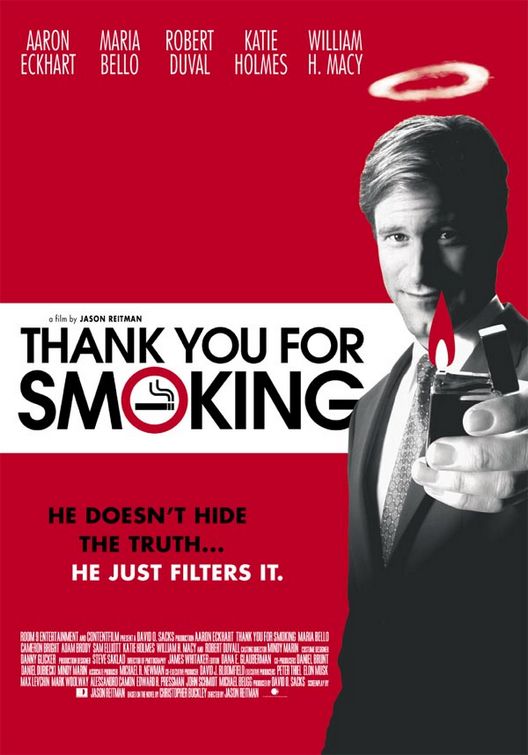
A brief history of smoking: For a greater part of the 20th century, ashtrays seemed to be on every desk. Almost every magazine and medical journal featured cigarette advertisements. Even Fred Flintstone endorsed cigarettes in TV commercials. Smoke hung in the air in restaurants, offices, and airplane cabins. Spurred by the instant coast to coast success of blended cigarette brands such as Camel, Lucky Strike and Chesterfield, cigarette companies spent millions on advertising and promotion to encourage smoking. The turning point came in 1964 when U.S. Surgeon General Luther Terry released an emphatic and authoritative report that said smoking causes illness and death — and the government should do something about it. In the decades that followed, warning labels were put on cigarette packs, cigarette commercials were banned, taxes were raised and new restrictions were placed on where people could light up.
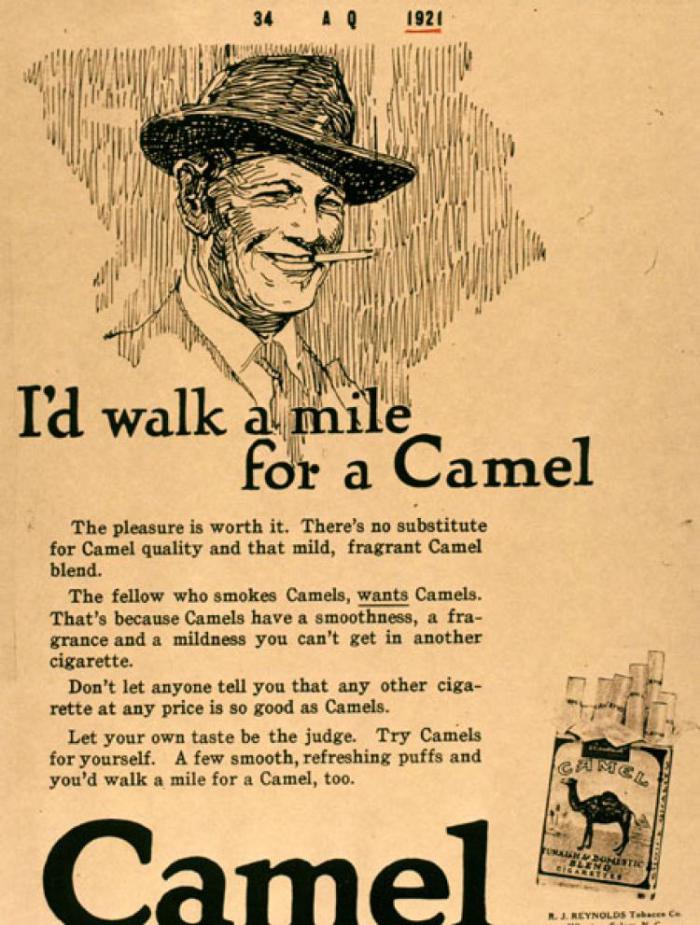
How smoking stood pre-pandemic: More than 50 years after it became clear that smoking kills, cigarette smoking among US adults hit an all-time low in 2019 according to a CDC report.
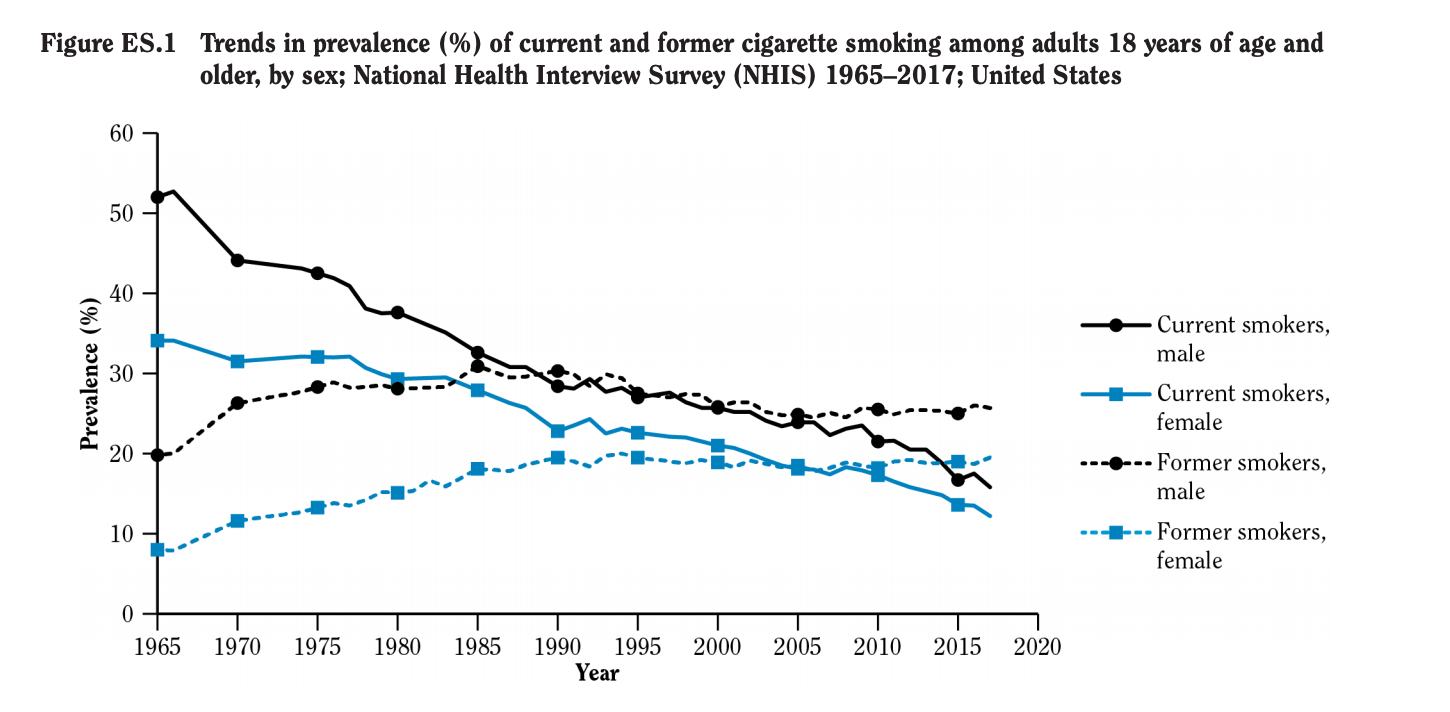
A shocking reversal: Over the past month, we have shared 3 trends that were declining but have been provided with a second lease on life, thanks to the coronavirus pandemic. A quick search on NWO.AI for signals related to interest in cigarette brands reveals a drop until May 2020 followed by a sharp rise. In short, people are smoking more during the pandemic. Take, for instance, the signal for Marlboro, a brand that accounts for 43% of all cigarettes sold in the US. Interest in Marlboro is up almost 100% in the last 3 months after hitting several inflection points in mid-May.
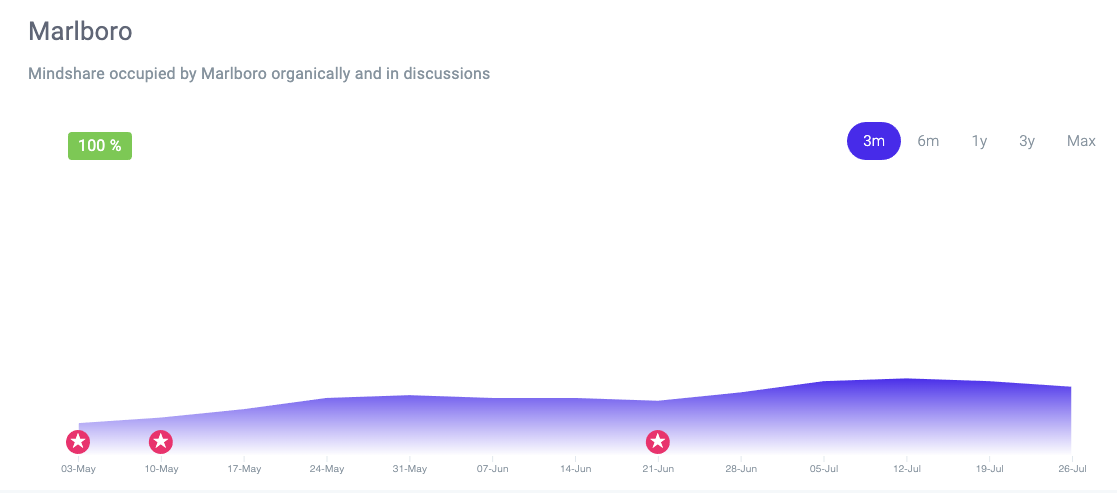
Why is this happening? The inflection point in the signal for “smoking” and “smoke shops" coincides with the arrival of the stimulus check. Our depressing inference is in line with a survey by Wallethub that concludes that some 24 million Americans have spent their money on either tobacco or alcohol.
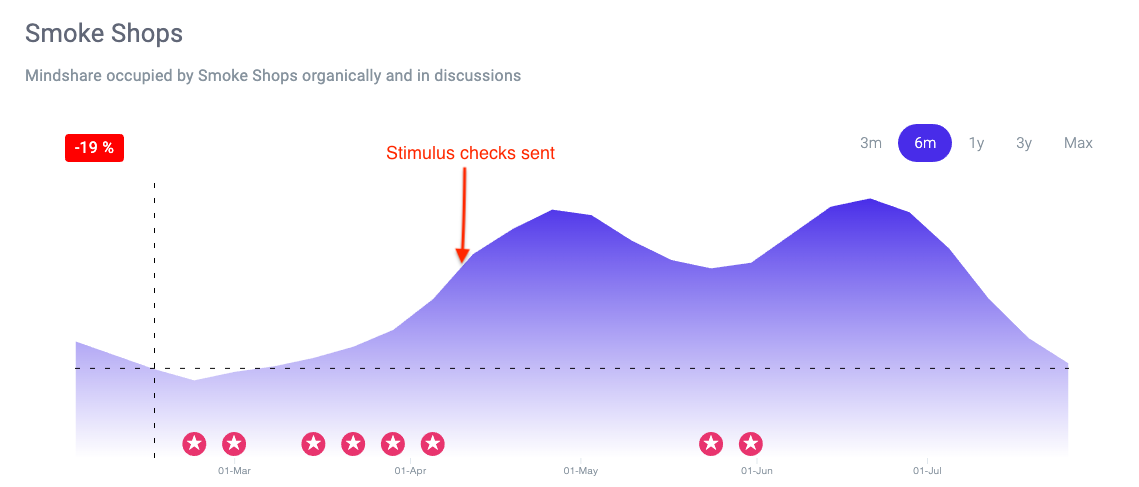
Another reason, according to the maker of Marlboro cigarettes, is a combination of fewer opportunities for people to congregate outside the home. “Fewer social engagements allow for more tobacco-use occasions,” said Altria Chief Executive Billy Gifford on an earnings call last week.
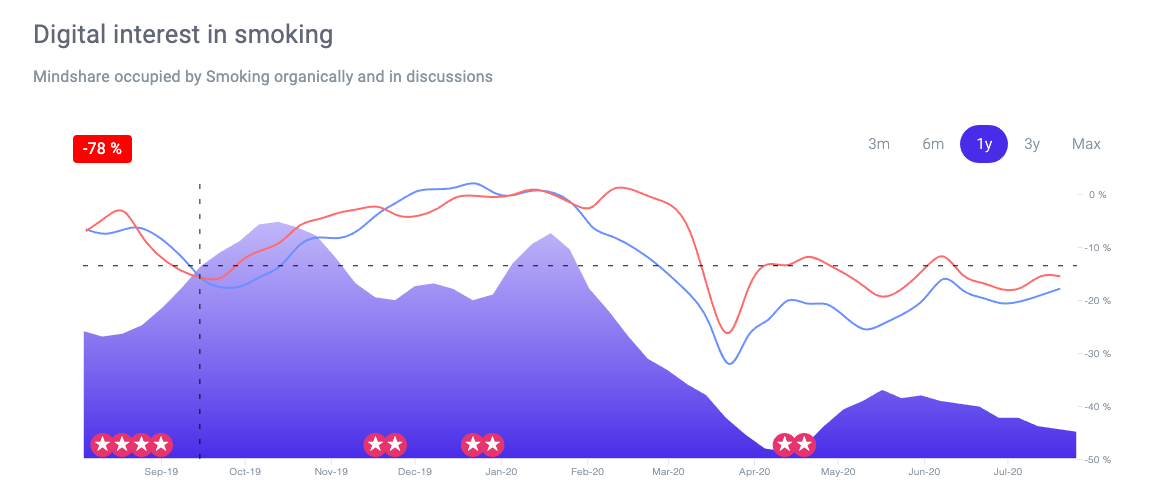
NWO.AI’s signals have also shown to be highly correlated to the stock price of several tobacco brands. Altria’s stock is up 5% during the past 3 months while Philip Morris is up almost 10% during the past month alone. The relative change in stock price for Altria and Philip Morris are denoted by the blue and red lines respectively.
Cigarettes are back, Vaping is dead: The signal for vaping and e-cigarettes shows a dramatic drop while the signal for cigarettes went up. This is probably due to federal restrictions imposed on e-cigarette flavors.
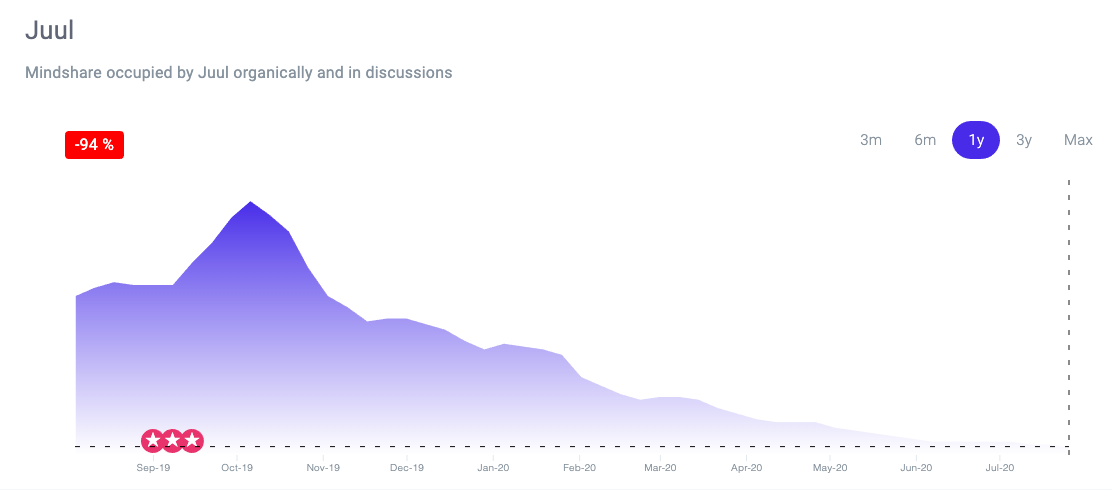
Perhaps, vapers are now switching to cigarettes as sentiment underlying vaping-related lung illness has reached an all-time low as shown below (red denotes negative tone whereas green denotes positive tone).
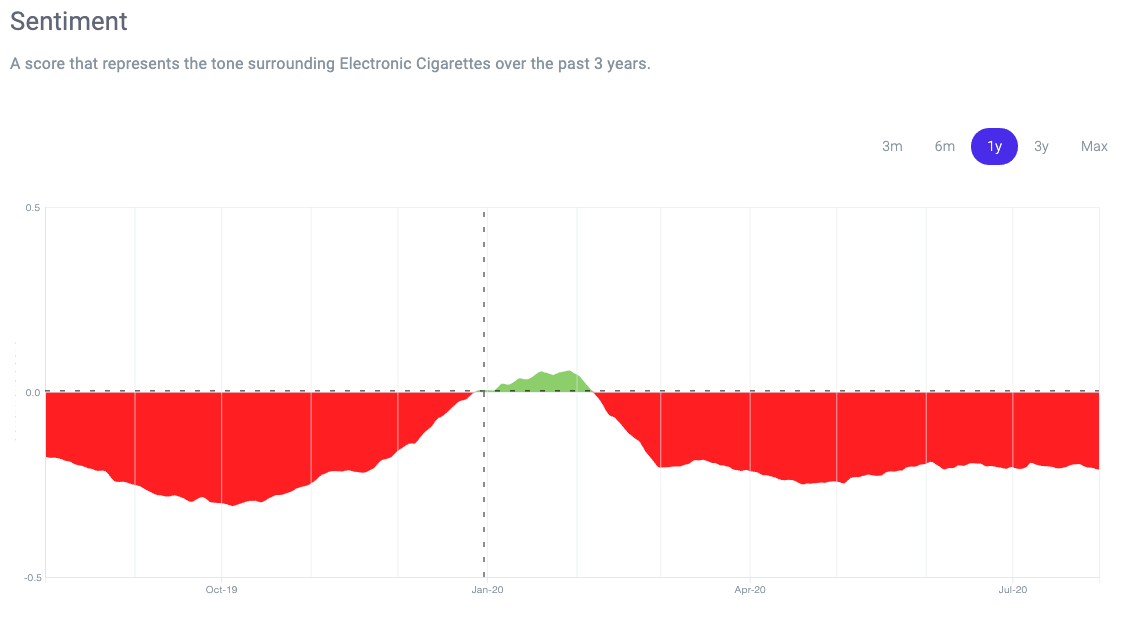
Ancillary services such as cigarette delivery have gained tremendous popularity.
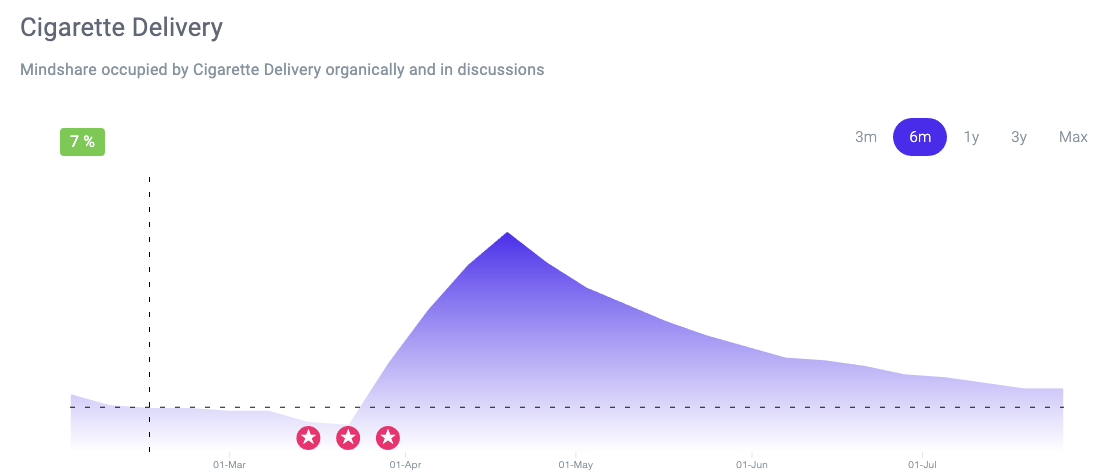
COVID-19 has created a new social, political, and economic world order. NWO.AI’s predictive platform generates alerts ahead of time and pre-empts users about rising trends before they become exponential. Reach out for a demo and we can help you better understand your category and ways to approach it.
As always, thanks for reading. Please invite your friends to sign up here.